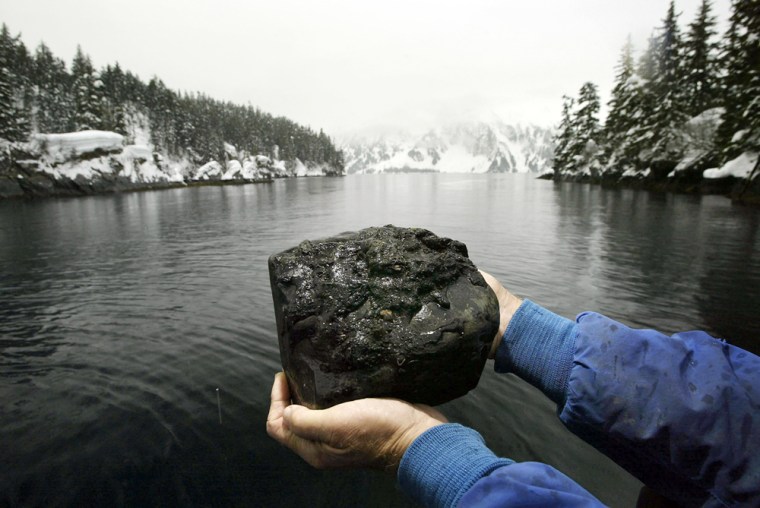Federal and state authorities asked Exxon Mobil Corp. on Thursday for $92 million to clean up remaining oil from the devastating Exxon Valdez spill nearly 20 years ago.
They said studies in the last five years have shown oil from the grounding of the Exxon Valdez tanker is still lingering in the tidal zones of Prince William Sound. The oil is reducing survival rates of some marine species and disrupting fishing activities in the region, according to a joint statement released Thursday by the Department of Justice and the state’s Department of Law.
“It is clear that populations and habitat within the oil spill area have suffered substantial and unanticipated injuries that are attributable to the Exxon Valdez oil spill,” Alaska Attorney General David Marquez said Thursday.
The nation’s largest oil spill emptied 11 million gallons of crude oil into Prince William Sound in 1989, killing hundreds of thousands of birds and marine animals and soiling more than 1,200 miles of rocky beach.
Exxon has paid $900 million in restitution for the spill.
A “reopener” provision in the settlement created a window from 2002 to 2006 in which the state and federal governments could claim up to an additional $100 million.
To claim the money, state and federal officials must prove that a population, habitat or species had suffered loss or decline in the area of the spill, and link that loss to the spill. They also must prove the loss was not known or anticipated when the settlement was signed.
Hundreds of studies by Exxon have shown the environmental impact to be less serious than claimed by other researchers. Company spokesman Mark Boudreaux said Wednesday that Exxon didn’t know of any new scientific studies that would merit reopening the settlement.
“We believe Prince William Sound is healthy, it’s robust, it’s thriving,” Boudreaux said.
The claim is separate from an unresolved punitive damage judgment of $4.5 billion against the company, which it is appealing.
